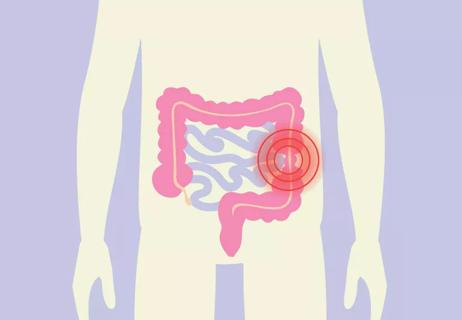Triggers can range from the foods you eat and the medications you take to how often you exercise and how stressed you are

Life with irritable bowel syndrome (IBS) can be unpredictable and stressful. It doesn’t damage the digestive tract, like inflammatory bowel disease (IBD) does, but it can seriously affect your quality of life.
Advertisement
Cleveland Clinic is a non-profit academic medical center. Advertising on our site helps support our mission. We do not endorse non-Cleveland Clinic products or services. Policy
“Most of the people I see live with symptoms like severe pain, uncontrollable bowel movements, and extreme urgency and frequency,” shares gastroenterologist Christine Lee, MD. “They feel like their bowel habits and pain rule their life.”
But what exactly is behind your gastrointestinal distress? The key to managing your IBS is first figuring out what triggers your symptoms — and that’s not always easy to do.
IBS can be made worse by all kinds of things, including:
But what’s a problem for one person may not be a big deal for another, which can make it hard to identify your unique triggers. Plus, Dr. Lee says that it’s difficult to standardize treatment recommendations because, where IBS is concerned, one size doesn’t fit all.
“There is a wide variety of IBS triggers, and it’s important to know that no two IBS patients are alike,” she notes. “So treatment recommendations need to be individually tailored.
“To try to get to the bottom of your triggers, it's important to go through all the alarm features and risk factors. Did you change your diet? Are you going through stress in your life, like in your job or family? Did you just start a new medication?”
Advertisement
All of these changes — and more — can play a role. Dr. Lee walks us through common IBS triggers and how you may be able to find relief.
Dairy-based foods are a common IBS trigger due to their high lactose content.
“Milk, ice cream, soft cheeses and yogurts can cause havoc on your digestive tract and bring about abdominal cramping pains, gas, bloating and diarrhea that can sometimes be quite explosive,” Dr. Lee says.
On the other hand, dairy lacks fiber, which can lead to constipation in some people.
What to do: Experiment with cutting back on dairy or swapping in lactose-free options to see if your symptoms ease. Just be sure you get enough calcium from fortified dairy alternatives, like almond, soy or coconut milk.
If you find that dairy is your main trigger for GI issues, speak with your healthcare provider. You may be dealing with lactose intolerance, a condition that makes dairy products hard to digest.
Fiber, which is found in foods like fruits, vegetables, legumes and whole grains, is one of the keys to gut health. But chances are, you’re not getting enough of it.
“Most people grossly overestimate the amount of fiber they consume,” Dr. Lee shares. “When they do the math accurately with a registered dietitian, they generally find out that they’re not getting as much as they thought they’d been.”
The recommended amount is 25 to 35 grams per day, depending on factors like your age, sex, body type, BMI, calories consumed in a day and other considerations. But it’s also important to know that not all fiber is created equal.
Insoluble fiber packs more of a punch than soluble fiber, helping your body process waste and improving your overall bowel health. But it’s harder to get in your diet.
“Any fiber is better than no fiber,” Dr. Lee concedes, “but it’s not all about the numbers. If you want to optimize your intake, it’s all about the quality of the fiber you’re getting.”
What to do: Start to incorporate more high-fiber foods into your diet, focusing on a balance of soluble and insoluble fiber. But eating too much fiber too quickly can make GI symptoms worse, so make sure it’s a slow, gradual process — and that you’re drinking enough water to compensate.
Caffeine stimulates the gut, so many people find that coffee makes them poop. But when you have IBS, you may be even more prone.
“The theory is that people with irritable bowel syndrome tend to be more sensitive to environmental influences,” Dr. Lee explains, “so coffee and other forms of caffeine may affect them more.”
What to do: Pay attention to how you feel after caffeinated drinks like coffee, tea and soda to see if they seem to trigger your IBS symptoms. And don’t forget to focus on drinking water, which helps food move through your digestive system. (Again, it’s especially important if you’re adding fiber to your diet!)
Advertisement
Dairy, caffeine and a lack of fiber certainly aren’t the only food-based triggers for IBS. Other foods that commonly trigger IBS symptoms include:
If it seems like IBS has endless possible triggers … well, that’s kind of true. But the key is to figure out which foods trigger your IBS.
What to do: It’s OK to try to cut back on something to see how it feels to go without it, but don’t try a truly restrictive diet without guidance from a medical professional. You risk serious vitamin and mineral deficiencies.
The low-FODMAP diet, for example, is a short-term diet that’s often recommended for people who’ve been diagnosed with IBS. It focuses on cutting out and then reintroducing eliminated foods one by one. But it’s one that you shouldn’t do on your own.
“You need expert assistance from a registered dietitian to help you guide through such a restrictive diet,” Dr. Lee says. “They are trained to help you eliminate and reintroduce foods in a way that will help figure out the ‘why’ behind your triggers.”
You might think that the way your digestive system acts has everything to do with what you eat. But studies show that stress can worsen gastrointestinal symptoms.
Advertisement
“Some people’s IBS is very strongly influenced by stress,” Dr. Lee states, “but identifying the stress trigger can ease those IBS symptoms and prevent flare-ups.”
What to do: Of course, stress relief may seem easier said than done. But do what you can to relax, whether taking time for a hot bath, taking short rests during the day or adopting relaxation practices like yoga, meditation, regular exercise, long walks, dancing, singing or gardening.
Exercise helps you relieve both physical and mental stress. It keeps your body strong, and it can keep your digestive system healthy, too — especially if you spend most of the day sitting for work.
“Prolonged sitting decreases your gut motility, or the way that food moves through your digestive tract,” Dr. Lee explains. “Exercise improves motility and promotes circulation, which is what you need to keep things moving along.”
What to do: You don’t necessarily have to start running marathons or pumping iron! Choose a form of exercise that works for your body. If you have back issues, for example, try chair yoga or wall Pilates. Any increase in movement is a start.
“Exercise is truly the best medicine on earth,” she continues. “It's single-handedly the most powerful key to your health.”
Advertisement
Taking a much-needed medication can change your life for the better, but may also come with unwelcome side effects. Among them? Some meds can trigger or worsen IBS symptoms.
“This is an IBS trigger that’s often overlooked,” Dr. Lee says. She cites some medications that can cause gastrointestinal issues:
“Some people seek second, third and even fourth opinions because they left out key information, like undergoing liposuction or a tummy tuck or starting a new antidepressant medication,” she continues. “A thorough health history taking is vital in identifying key triggers in IBS treatment.”
What to do: If you suspect that a medication change or a recent procedure could be triggering your IBS symptoms, talk to your healthcare provider about options. And always be truthful with your provider when you’re discussing your medical history and recent life changes so they have all the information they need in making a diagnosis and treatment plan.
There are already plenty of reasons to quit smoking, but here’s another one to add to the list: In some people, smoking makes IBS symptoms worse. One study found that people who smoked were twice as likely to experience IBS-related diarrhea than those who didn’t smoke.
What to do: Need help quitting? Look for a local support group or, in the U.S., call the free quit line at 1.800.QUIT.NOW (1.800.784.8669) to learn about support and counseling.
Did you know that there are more serotonin receptors in your intestinal tract than in your brain? Serotonin is a neurotransmitter — a chemical that carries messages between your digestive tract and brain. But issues with neurotransmitter communication can cause issues with IBS.
“Some people have decreased neurotransmitter communication,” Dr. Lee explains. “They don’t get the signals to tell them that they’re constipated and thus, the constipation can go unnoticed until complications develop.
“On the other end of the spectrum are people who have heightened neurotransmitters, so they feel everything,” she adds. “What might feel like a normal bowel movement or gas to other people causes them excruciating pain.”
What to do: Your healthcare provider may suggest medications that can help block or stimulate the serotonin receptors in the gut. Behavioral medicine treatments like progressive muscle relaxation, guided imagery, cognitive behavioral therapy and biofeedback may also help change the connection between your brain and your gut, ultimately, lessening your IBS symptoms.
Lifestyle changes may help tame your IBS. To give your body time to adapt, make gradual changes:
Take care of your overall health by getting up to date on all of your routine health maintenance appointments, including annual physicals, cancer screenings, well-woman visits, etc.
“Try to follow a regular schedule, too,” Dr. Lee advises. “Habits like waking up at the same time and eating three meals a day can lead to having regular bowel movements first thing in the morning or utilizing circadian rhythm to your advantage.”
If you’re dealing with mild IBS, your primary care doctor may be able to suggest specific changes in your diet and lifestyle to help you manage your symptoms. A visit with a registered dietitian may be worthwhile, too.
But if your IBS symptoms persist, it’s time to talk to a gastroenterologist. These specialists can rule out other conditions and prescribe medications that can normalize your bowel function.
There are also times when you should seek medical attention right away, like if your IBS symptoms are accompanied by:
No matter when you see a gastroenterologist for your IBS, you’re likely to have to see them again.
“IBS requires understanding, time and patience,” Dr. Lee says. “It may take several visits over a long period of time to see improvements in your symptoms.”
Prepare to be very detailed in the information you share with your gastroenterologist. Like a detective gathering clues to solve a mystery, your doctor needs to know about all of the possible factors that could be affecting your gut.
“No two IBS patients are the same,” Dr. Lee reiterates, “so what works for one person may not necessarily work for another. We have to sit down one-on-one and find out what your specific triggers are and, more importantly, why those are your triggers. Only then can we figure out how to tame your IBS.”

Sign up for our Health Essentials emails for expert guidance on nutrition, fitness, sleep, skin care and more.
Learn more about our editorial process.
Advertisement

A low-FODMAP diet or gluten-free diet could help you manage your symptoms, but only with professional guidance

Changes in eating, exercise and sleep habits often can help reduce symptoms

Pediatric IBS treatment involves making dietary adjustments, getting mental health support and — in some cases — taking prescription medication

Symptoms of IBS usually include abdominal pain, coupled with bloating and more

You don’t have to limit travel with proper planning

The caffeine and natural acids in coffee may trigger acid reflux, but there are ways to lessen the effects

Wait a few hours, then start with water or ice chips, graduating to clear liquids and then, soft, bland foods

Eating a healthy diet, reducing stress, and focusing on exercise and sleep can help keep your digestive system in top form

Even small moments of time outdoors can help reduce stress, boost mood and restore a sense of calm

A correct prescription helps your eyes see clearly — but as natural changes occur, you may need stronger or different eyeglasses

Both are medical emergencies, but they are very distinct events with different causes